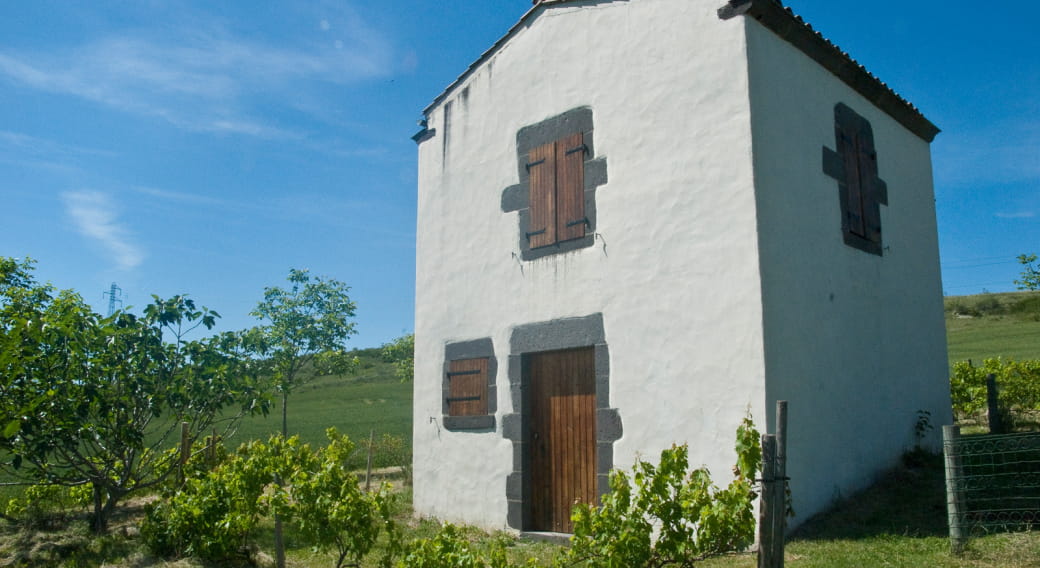The “tonne” is the local name for this small building built in the middle of the vineyard and used for the vine growing business.Often built on a traditional model, some of them nonetheless have original features.
The “tonne de vigne” is the local name for this small building built in the middle of the vineyard, formerly used for storing tools and as a shelter during the harvest. The tonne could also accommodate a vat room for storage and fermentation of the freshly crushed grape must. Certain tonnes were re-purposed to be used as dovecotes.
The tonne de vigne often follows the same model: a square construction with a single-pitch lean-to roof, covered with hollow terracotta tiles. Some original tonnes deviated from this model. For example, the Chareiron tonne in Châteaugay was built from stone and in the form of a cone. The same is true for the tonne close to Rue des Torts, in Pérignat-lès-Sarliève, with a hip roof covered with slate and enhanced with a terrace opening up onto the vines.
Some municipalities restore these tonnes that are often left derelict, such as Cournon-d’Auvergne, which has restored this tonne and Romagnat which has implemented a shared vineyard at Puy de Chomontel. Private initiatives have also been taken to preserve these buildings, particularly on Puy de Montaudoux in Ceyrat.
Musée de la vigne et du vin, 24 avenue Jean Noëllet in Aubière, recounts the history of the vineyards of Basse-Auvergne and its expertise, from planting to the winemaking process.
- Visible from the road only.
Periode d‘ouverture : Ouvert toute l‘année
All year round, daily.











